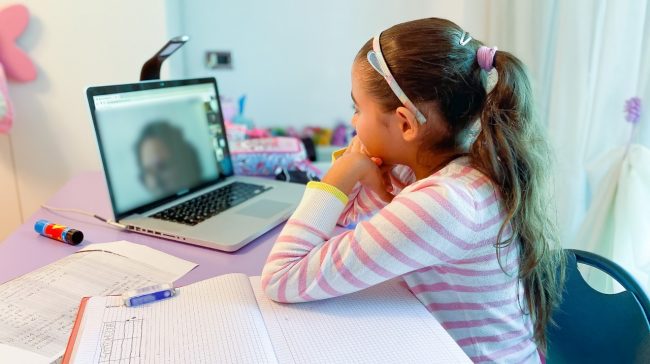The COVID-19 pandemic is a global crisis. Hundreds of thousands of people have died, millions have lost their jobs and millions of children are out of school. Parents, teachers and therapists have deep concerns about the toll this could have on children of all ages now and down the road. It’s hard to see any bright spots.
But here’s one: Mental health experts say our kids could come out of this crisis with some pretty powerful life skills and tools for getting through hard stuff. That’s not to sugarcoat how tragic this has been and will be for many families. But it is a reminder of the kind of learning that can come through pain and adversity.
It’s a terrible time that we are in”, “But it’s also an opportunity for kids to learn they have tremendous capacity to overcome adversity.”
Here are four powerful life skills kids could take away from the coronavirus pandemic, and some pretty quick and simple strategies to help them get there.
Article Contents
Lesson #1: How to live with uncertainty.
In a matter of months, kids’ worlds have been totally upended by COVID-19. They don’t go to school or daycare, they don’t see friends, and in many cases, they can’t even really go outside. None of the grown-ups in their lives can give them any answers about how or when this will all end, because everything is uncertain.
How you can help: Rather than trying to give your kiddo a clear answer about what comes next, be honest about the fact that there is a lot we do not know. If you have a toddler or preschool-age kid at home, explain that doctors are working to find medicine that will help us all be healthy and could allow life to go back to normal.
With older kids, you can be more candid. Ask them about what they think is happening in the world right now, then tell them what you know — and what you don’t. Promise you will continue talking about what comes next as things continue to change and progress.
Lesson #2: How to be resilient.
While there’s plenty of anecdotal evidence that some kids are struggling right now — and that absolutely should not be dismissed — experts say that children are remarkably resilient. This is a great time for parents to help kids tap into that, and to appreciate their own abilities to bounce back.
“I think it’s important to say that most children are going to be OK”. “Children and teenagers are resilient.”
How you can help: “Allow room for their discomfort,” One way of doing that is simply to acknowledge (in an age-appropriate way, of course) that you are also feeling stress or fear. Then “model coping,” he said. Do you walk? Practice deep breathing? Talk to friends? Invite them to join you. Bonus: You’ll force yourself to actually do a bit of self-care.
Reinforcing your kiddos’ problem-solving skills can also help foster resiliency.
“When there is a dilemma or a question, instead of answering it, it’s a great time to ask our kids to tell us what they’re thinking,”. “It may be the first time in a long time that we’ve had the time to sit down and really observe our children’s thinking processes and problem-solving skills.”
If your kid tells you they’re sad or lonely, perhaps ask what they think a good coping strategy is, rather than immediately jumping in with a suggestion. Give them a chance to think on their own, and to use you as a sounding board.
Lesson #3: That they are so much more than school and extracurricular.
“One of the really fun things I’m seeing with older kids is that many of them have had ideas of things they wanted to learn or do that they’ve never really had the time for,”.“Our teenagers are over-scheduled. They don’t have downtime or playtime anymore.
It’s not about self-improvement. It’s about making sure your kid recognizes they have time and space to reconnect with who they are outside of school and their usual routines.
How you can help: Talk with your kid about what they’d like to be doing more of, then be prepared to get into their chosen hobbies with them — even if that means playing Fortnight. If they don’t necessarily have a ton of ideas about what they’d like to do, think about some simple things you can do together, like playing a board game or making a meal together.
Then tell them how happy you are to have that time together, and how much you value your connection with them.
Lesson #4: How important their role is in your family.
When everyone is busy rushing out the door to work or school, your kid may lose sight of their own role in the household. Now is a good time to make it clear that your family — whatever shape it might take — is a team, and they are an essential part of it.
“You’re teaching them that they’re partly responsible for the family getting through this”.
How you can help: If you’ve got little ones at home, ask them to help you sweeping, or cleaning up toys, or other simple chores. You might have to redo it, but you’re setting a precedent. They are a part of the team.
If you’ve got older kids, now is a good time to give them more responsibility around the house than you might otherwise. Let them set their own alarm clocks. Give them chances to make their own meals. Make sure they’re taking out the trash or cleaning up around the house. Give them important roles at home.




